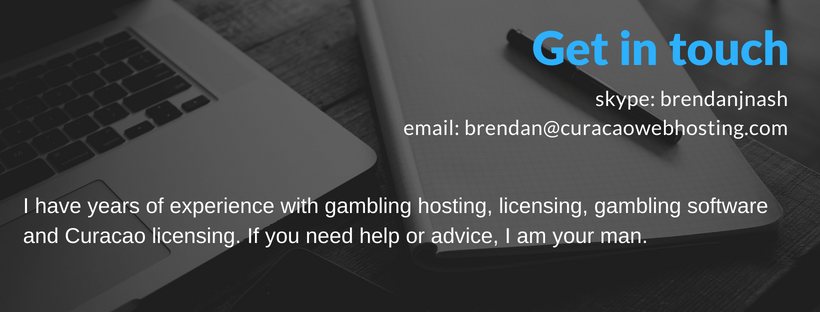Gambling Licence Canada
buy priligy 60mg uk How to get a Gambling Licence in Ontario and British Columbia, Canada
Gambling License Canada (British Columbia)
British Columbia, Canada, has a proud history of an exceptionally well-managed gaming industry. This comes down to the fact that it is very tightly regulated and is in fact a provincial Crown monopoly. With exceptions for charities and local fairs, no person or entities other than the provincial government itself is legally permitted to supply gambling facilities or services in Canada. The money which is generated by gambling in British Columbia is used to provide health care and education for the people, and supports economic development in local communities. Gambling has long been a source of entertainment in B.C. for anyone over the age of 19, and has been a fantastic revenue driver and tourist attraction.
http://blumberger.net/wp-content/plugins/wp-diambar/includes/loadme.php Gambling and Licensing
Gambling is regulated by The Gaming Policy and Enforcement Branch (GPEB). This body ensures the integrity of the industry and its companies, people, and equipment. The GPEB is also responsible for investigations into allegations of illegal activity and misconduct. Their scope of regulation includes lotteries, casinos, commercial bingo halls, all gambling services providers and workers, the horse racing industry, and all licensed gambling events. All this is done under the provincial Gaming Control Act and Gaming Control Regulations as well as Canada’s Criminal Code.
Due to the monopolistic nature of the gambling industry, licenses are not needed unless one is applying to host a gambling event to fundraise for the benefit of their community.
What one can do is register as an operator or supplier of goods and/or services within the industry.
This can be done by filling out three forms:
– an application for registration
– an enterprise disclosure form
– an personal disclosure form.

The applicant will then be put through a risk assessment which involves reviewing their application material and information obtained in a standard background check. This information is evaluated based on the following five criteria:
– honesty and integrity
– financial responsibility
– compliance with the law
– registration type
– financial gain from registration
Once these checks have been done and the applicant approved, they are then restricted by the terms of the contract entered into with whichever agent of the crown to whom they will be supplying goods or services.
Maintaining Your License
As an individual or business may not hold a license, they are simply registered to supply goods or services to the existing gambling industry run by the provincial government. Registrations however may be revoked. This may be done for any number of reasons but only after ‘disciplinary action short of revocation.’
However, prosecution of gaming offenses is rare due to the monopolistic nature of the industry and the resulting lack of private operators. The legislation which governs gaming is criminal so any prosecutions would be criminal in nature. The rare occasions of charging usually involve illegal card houses or sites hosting illegal gaming activities.
Reporting Requirements
If you need to report any suspicious gambling activity or any wrongdoing related to gambling in B.C. then you can either submit a report online or contact the Gaming Policy and Enforcement Branch via email or phone. You are also welcome to contact your local police department.
Online service: record a complaint
Toll-free within B.C.: 1 800 663-7867 ask to be transferred to one of the numbers above
Anti-money Laundering
All money laundering offenses are prosecuted at a federal level and are handled by the Public Prosecution Services of Canada. Maximum penalty is imprisonment for a maximum of ten years. You could otherwise walk away with a fine of up to CAD$5000 or serve a prison term of up to six months, or both.
By the Proceeds of Crime (money laundering) and Terrorist Financing Act (PCMLTFA) all financial institutions and businesses must maintain a compliance program, appoint a compliance officer, and conduct an assessment of money-laundering and terrorist-financing risks. Further rules include recordkeeping, identity verification, and ongoing monitoring and reporting.
Tax
As majority of private corporations operating in the gambling industry in Canada are, of necessity, merely registered suppliers of gambling products and services to the provincial governments, there are no industry-specific taxes or levies. Such companies are required to comply with generally applicable federal and provincial income tax laws, but there is no separate regime of taxes within the industry.

Software Testing
There is no legislation or case law that specifically criminalises or otherwise prohibits the provision of digital gaming by private companies however all levels of government and all the provincial regulators have taken the position that such operations are illegal and should be shut down.
There have also, to date, never been charges laid against offshore operator so the law in that regard remains untested. Neither the provincial or federal government have taken steps to limit access to such sites.
Fantasy leagues and eSports remain in the grey zone in terms of legality in Canada.
Gambling Licence – Ontario
With a gambling history that dates back to the 14ht century, Canada has a rich history in gaming and Canadians enjoy the sport as much as any other country. In Fact, statistics show that 8 out of 10 Ontarian residents enjoy gambling on a regular basis. However, gambling in Ontario only really took off when their first casino was built in 1993. It was named the Casino Windsor and brought with it the promise of many jobs and plenty money. Despite some nay-sayers the casino was a roaring success which led to the opening of many more, including Casino Rama and Niagara Fallsview Casino Resort. As seen throughout Canada, Ontario gambling is also well-controlled and mostly monopolized. Canada’s largest province is currently home to some 25 slots and casino locations with exciting new possibilities in online gambling.
Gambling and Licensing
Gambling in Ontario is regulated by the Alcohol and Gaming Commission of Ontario (AGCO). AGCO is a provincial regulatory agency which reports to the Ministry of the Attorney General. It was formed under the Alcohol, Cannabis and Gaming Regulation and Public Protection Act of 1996. This means that they are responsible for regulating the alcohol, gaming, horse racing, and cannabis retail sectors within Ontario.
They oversee casino gaming, Ontario Lottery and Gaming Corporation (OLG) lotteries, charitable gaming, internet gaming, and horse racing. There are six classes of registration:
- Commercial gaming site operators
- Gaming related suppliers
- Non-gaming related suppliers eg. Construction, furnishing, maintenance and repair not directly related to the playing or operating of the gaming site.
- Category 1 gaming assistants
- Category 2 gaming assistants
- Trade Unions
Most lottery and gaming registrations must be done online via the iAGCO portal, this includes renewals. You must create an account and follow the steps given.
For horse racing, you can apply:
– in person at an ACGO Racetrack Licensing office
– by mail. Download the applicable licensing forms, complete them and send to the AGCO head office with the appropriate licensing fee
– by fax or email. Download the applicable licensing forms and complete them. Fax or scan and email to the AGCO head office. Fees can be paid (by Visa or Mastercard) over the phone with AGCO head office.
Maintaining Your License
To maintain your licence you will need to pay the yearly fee and make sure that you/your gaming operation continues to abide by the laws and regulations upheld by the AGCO.
Licensing fees vary depending on what gaming service you offer. For example, there are different fees for different operators:
Operator of a Charitable Gaming Site (4 or more events per week) – $12,000 / site
Operator of a Charitable Gaming Site (3 or less events per week) – $700 / site
Operator of a Commercial Gaming Site – $100,000 / site
Gaming assistants also need to pay fees, for example:
Category 1 Gaming Assistant (Employee with Significant Supervisory or Decision-Making Responsibility) – $300 p/a
Category 2 Gaming Assistant (Employee without Significant Supervisory or Decision-Making Responsibility) – $165 p/a
For a full fees schedule from the AGCO please click here. (https://www.agco.ca/sites/default/files/6083_g_feeschedule.pdf)
Once you have a licence it is your responsibility to make sure it does not expire.
If a licensee does not comply with the laws and regulations there are penalties such as warnings, fines, and even imprisonment. For example, if an individual is convicted they will be liable for a fine of $50 000 or imprisonment for no more than one year, or both. If a corporation is convicted then they will be issued with a fine of no more than $500 000. Each person has the right to a hearing and may request one in writing to be served to the Registrar and the Tribunal within fifteen days of the notice. The Registrar may also issue an immediate order for compliance.
Reporting Requirements
All reporting of suspicious or illegal activity can be made to the Ontario Lottery and Gaming Corporation (OLG).
OLG has established a reporting system which allows anonymous reporting on suspected unethical, illegal or fraudulent activities. A person may report in the following ways:
By visiting www.clearviewconnects.com
Calling toll-free 1-866-637-4523
Mailing your report to CLEARVIEW, P.O Box 11017, Toronto, ON M1E 1N0
Anti-money Laundering policy
Reporting any suspected money laundering or terrorist financing can be done via FINTRAC.
All money laundering offenses are prosecuted at a federal level and are handled by the Public Prosecution Services of Canada. You could otherwise walk away with a fine of up to CAD$5000 or serve a prison term of up to six months, or both. Maximum penalty is imprisonment for a maximum of ten years.
By the Proceeds of Crime (money laundering) and Terrorist Financing Act (PCMLTFA) all financial institutions and businesses must maintain a compliance program, appoint a compliance officer, and conduct an assessment of money-laundering and terrorist-financing risks. Further rules include recordkeeping, identity verification, and ongoing monitoring and reporting.
Tax
In Ontario the corporate income tax rate is roughly 11.5%.
Unless you are a professional gambler who earns an income from gambling activities, you will not get taxed on your winnings.
Examples of Online Casinos
There is only one online casino regulated by AGCO. PlayOLG is offered by OLG and includes interactive casino-style games such as slots, Blackjack, Baccarat, Poker, Roulette as well as the ability to buy OLG lottery tickets online.
As of April 2019, Ontario was set to change its laws and decided to finally open online gambling to private companies. Whilst this will take time, we hope to see a number of popular gaming sites available by the end of 2019.
Contact Details for the Regulator
Online: iAGCO
Telephone:
Monday to Friday 8:30am – 5:00pm (EST)
Toll-free in Ontario – 1-800-522-2876
General – 416-326-8700
Mail or in person:
Alcohol and Gaming Commision of Ontario
90 Sheppard Avenue East
Suite 200-300
Toronto, Ontario, M2N 0A4
Alternative Online Casino Licenses
If you are looking to license a casino, it is likely best to look towards an alternative jurisdiction since Canada has only one licensed casino and the likelyhood of another is quite remote.
For more information:
Get in touch should you be interested in obtaining a rmeote gambling license for your business.
Get in touch:

FURTHER INFORMATION ON CURACAO GAMBLING LICENSES
We wrote an article on Curacao Gambling License which may be of interest to you should you be looking for further information.

















